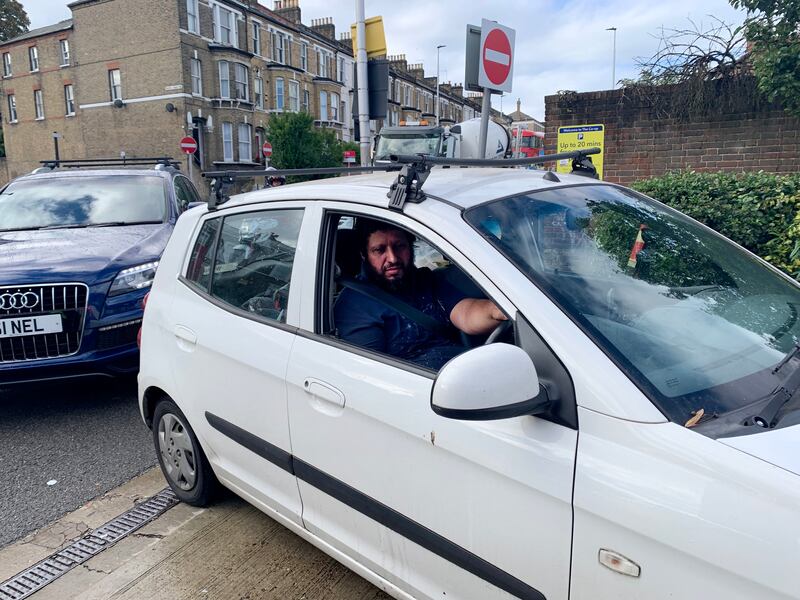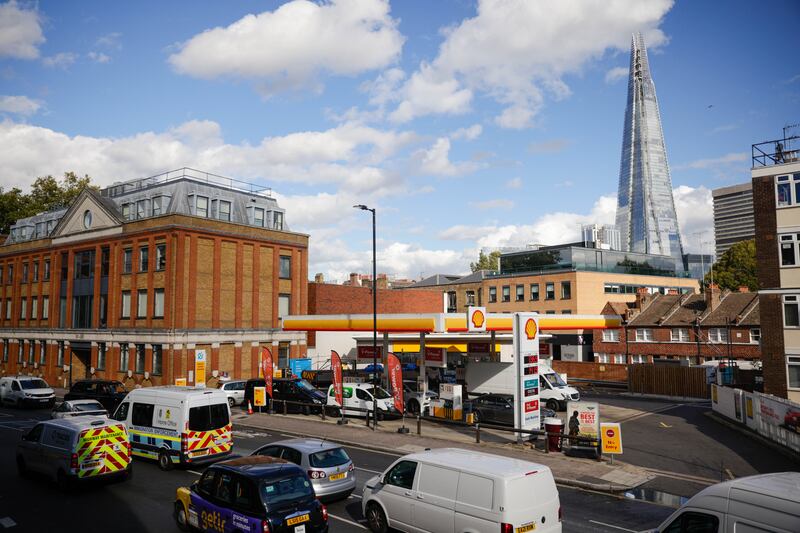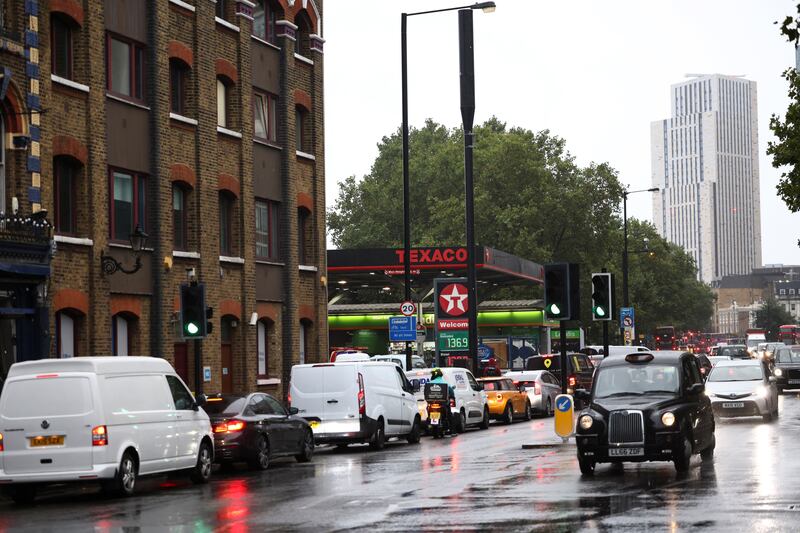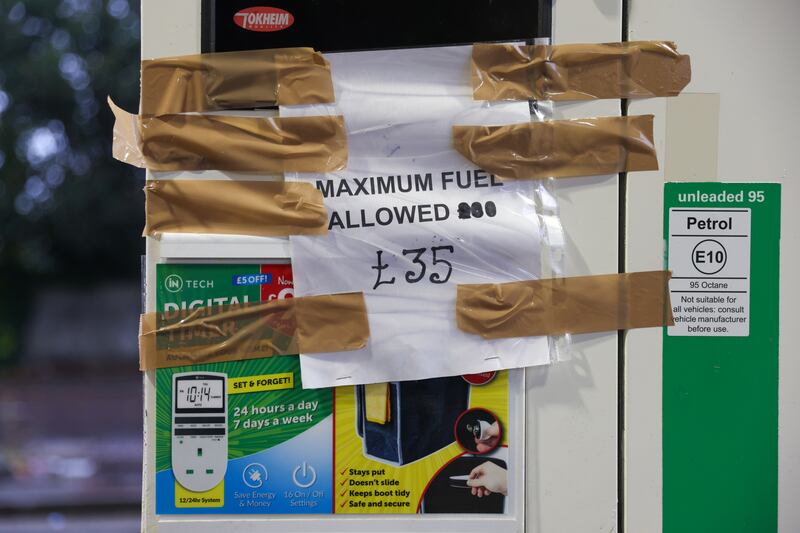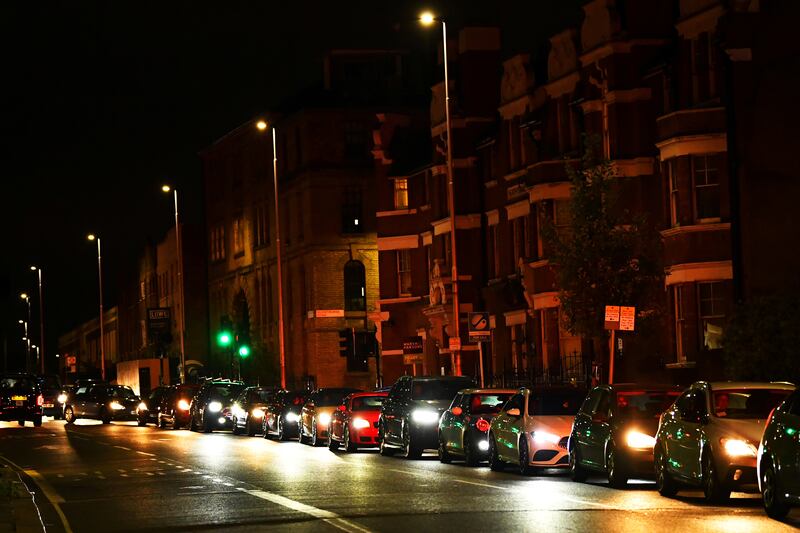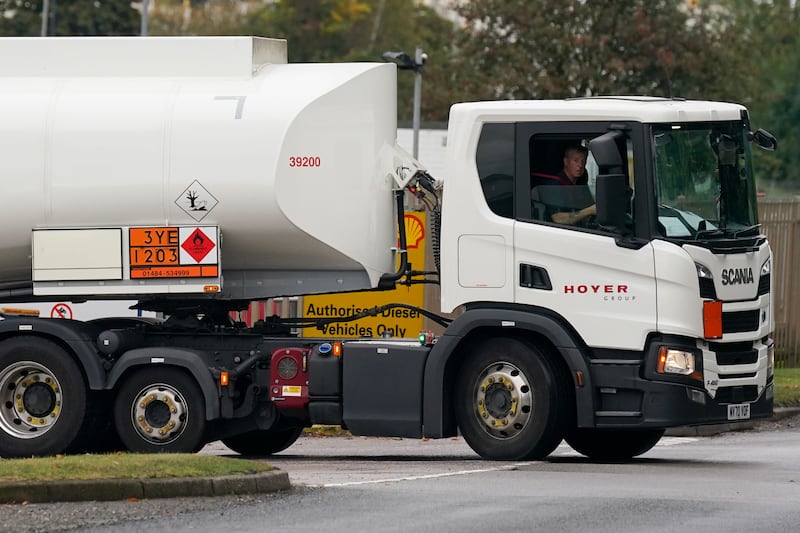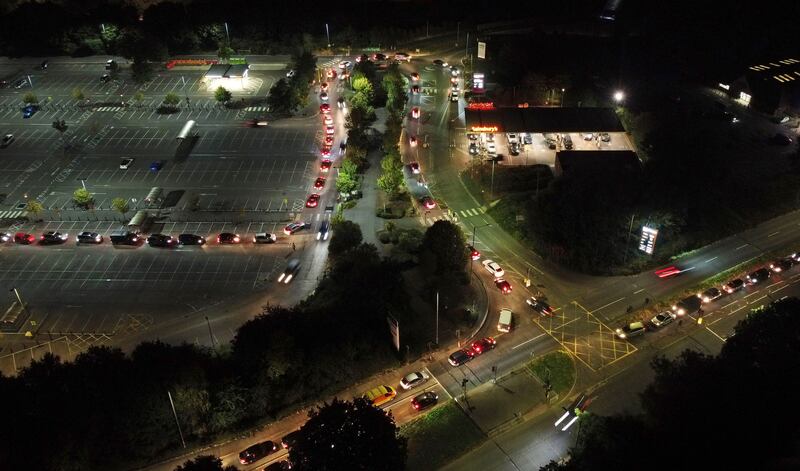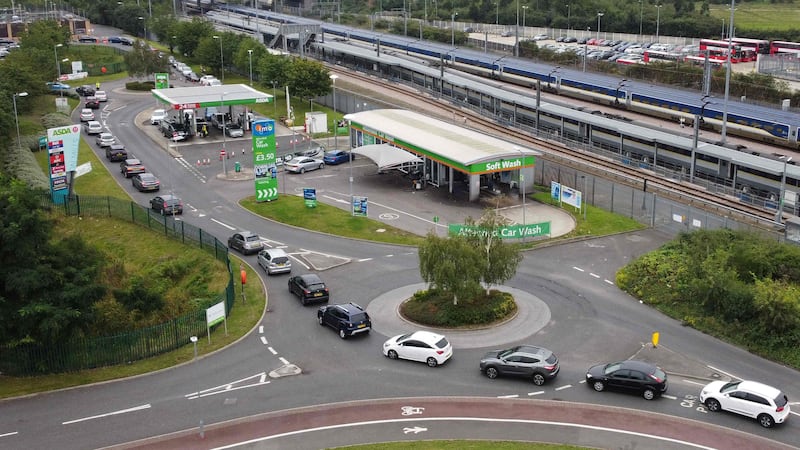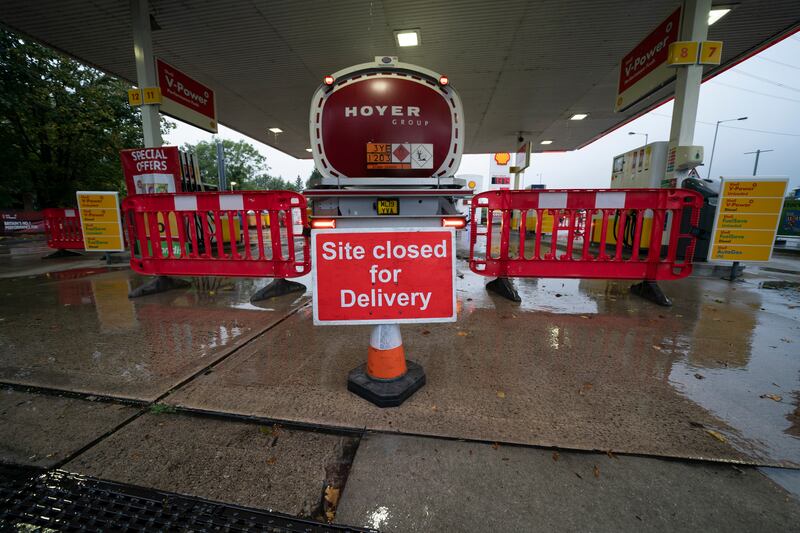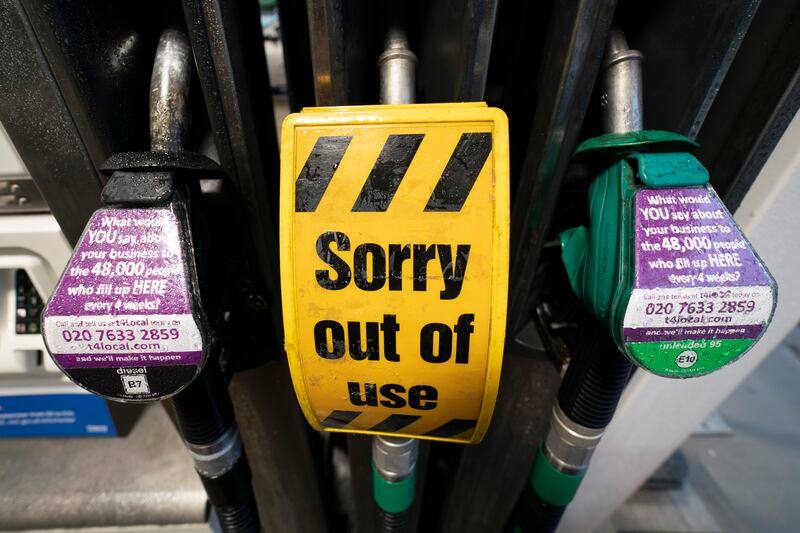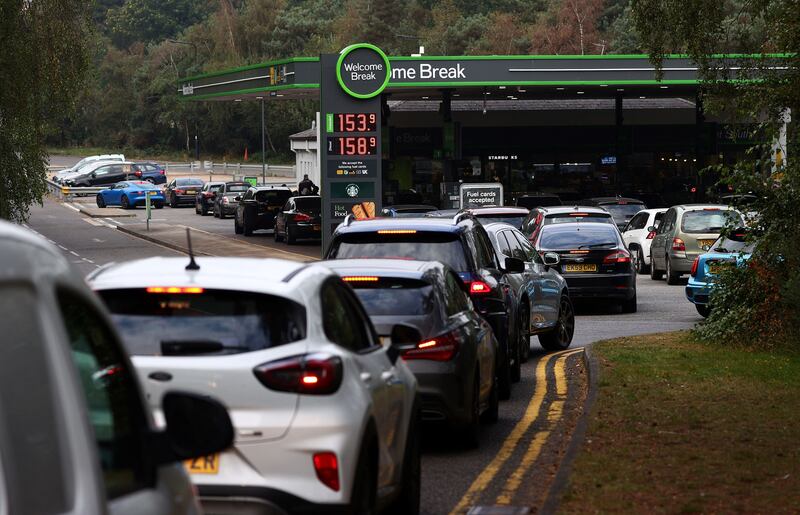Decorator Alex Berry was more than an hour late for work on Monday, a victim of the fuel crisis gripping Britain.
He was forced to queue for fuel as around him tempers frayed and frustration boiled over that panic buying at the weekend left morning motorists running on empty.
Mr Berry was among dozens of drivers at a Texaco filling station in south London when The National visited during rush hour. He realised only this morning that he needed to refuel.
“The traffic is chaos,” said Mr Berry from Stockwell, south London.
"Right now I am an hour and a half late. The panic buying is dreadful for people like myself and cab drivers.
“There are people who have just filled up to park outside their house and we need it as a necessity.”
A shortage of lorry drivers caused some petrol companies to prioritise deliveries last week, but it sparked fears that supplies would run out and create a rush to the pumps. Ministers have repeatedly tried to reassure motorists that there is no shortage of fuel, but to no avail.
The government instead is attracting criticism from drivers.
Antonio Abreu had visited four filling stations, all of which had run out of fuel. and had been queuing for 20 minutes outside Texaco when he spoke to The National.
“I am already an hour late,” said the builder, originally from Madeira, Portugal.
He welcomed the new temporary visa scheme announced by ministers on Saturday, which will allow 5,000 foreign heavy-goods vehicle drivers to work in the UK on three-month contracts in the lead up to Christmas.
But Mr Abreu said the measure was too little, too late.
“The government should have let more Europeans come to work,” he said.
“We need to get to work and we cannot get petrol. The government has a lot to answer for.”
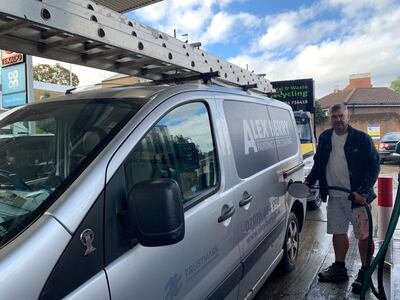
Kevin Fernandez, who works for a lighting and electrical company called for petrol stations to impose limits on all drivers to prevent people from taking more than they need.
“I have been queuing for an hour,” he said.
“People are just panic buying. They should impose a £30 ($41) cap on drivers and should require proof if people want more.”
An NHS worker who wished to remain anonymous said she had no choice but to queue for petrol after unsuccessfully trying other stations on Monday.
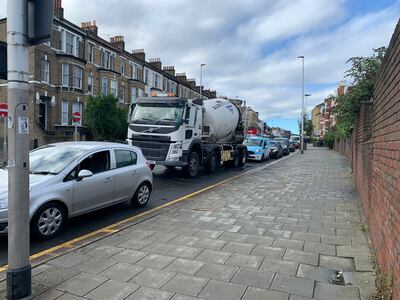
“I’m quite late,” she said. “My place of work is half an hour away.”
She believes warnings against panic buying from industry bosses had backfired and scared people into taking more fuel than they need.
“If people are being told not to panic buy it has the opposite effect,” she said.
Shemu Begum, team leader at the station, told The National the latest tanker arrived late on Sunday to restock the pumps and she expected stocks to last until about noon on Monday.
“Yesterday was worse, it was madness,” she said. “We just said everyone can get £20, enough to drive to work.
“We ran out at 1.50pm and had to close. People were upset but we said we cannot do anything.”
Arguments broke out among frustrated drivers but staff acted quickly to prevent any ugly situations from escalating, she said.
“We were telling them calm down, that it’s no good arguing or fighting,” she said.
Fears emergency services will be unable to work
There was a similar pattern across London and the rest of the UK.
A self-employed electrician said “idiots” panic buying fuel had “directly taken food off the table” for his wife and son.
Roland McKibbin, 31, from Beckenham, south London, said he was able to reach only one of his scheduled jobs on Monday and was forced to cancel the rest.
“I rely on fuel to travel to jobs. No fuel means I can’t drive, which means I can’t get to jobs with my tools,” he said.
“So, basically, the panic-buying idiots have lost me income.”
The British Medical Association has called for healthcare staff and essential workers to be given priority at filling stations, warning that as pumps run dry “there is a real risk that NHS staff won’t be able to do their jobs”.
The government has faced calls to use emergency powers to “designate fuel stations for the sole use of key workers”.
The Unison trade union said key workers should not be left stranded or forced to queue for hours for fuel.
Government to discuss using military to tackle crisis
Britain’s Prime Minister Boris Johnson was said to be considering deploying the Army to alleviate the chronic shortages of HGV drivers, which the government say has caused the fuel crisis.
The measures are part of emergency plans being lined up by ministers as queues built up outside petrol stations for the fifth day running.
Brian Madderson, chairman of the Petrol Retailers Association, said troops were being trained “in the background” to drive HGVs as he warned up to 90 per cent of forecourts had run dry.
Environment Secretary George Eustice said the government has “no plans at the moment” to use the Army to drive petrol tankers amid continuing shortages at filling stations.
“We are bringing Ministry of Defence trainers in to accelerate some of the HGV training to clear a backlog of people who want to carry out those tests, and there’s definitely a role there for the MoD," he said.
“We’ve no plans at the moment to bring in the Army to actually do the driving, but we always have a Civil Contingencies section within the Army on standby – but we’re not jumping to that necessarily at the moment.”
He urged motorists to stop “panic buying” petrol and return to their normal pattern of purchasing, reminding people there is no shortage of fuel, only drivers to deliver it.
“The most important thing is that people buy petrol as they normally would,” he said.
“There isn’t a shortage. There have been some shortages of HGV drivers getting petrol to forecourts but actually that is quite limited.
“The cause of these current problems is ... panic buying ... and the most important thing is for people to start buying petrol as they normally would.”
On Sunday, BP said about a third of its petrol stations had run out of the two main grades of fuel.
The industry has in recent months been hit by a serious shortage of HGV drivers due largely to Brexit and the Covid pandemic.
Many European drivers left the UK to return to their home countries during lockdowns and tests for people hoping to qualify in HGV driving were postponed.
UK Prime Minister Boris Johnson may call in army to help tackle fuel shortages
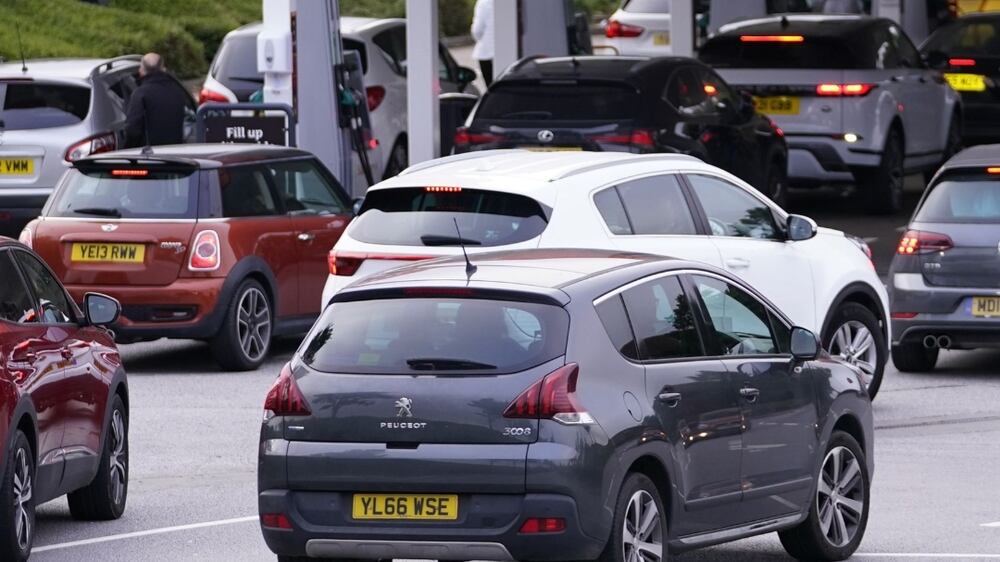
Mac Fels, director of HGV Recruitment Centre, said the sector was short of about 90,000-100,000 drivers.
He said the government’s three-month visa scheme was “not going to make a very large dent on” the number needed to fill the gap.
At the weekend, Business Secretary Kwasi Kwarteng announced a new visa scheme to alleviate shortages of HGV drivers by bringing in qualified drivers from overseas.
He said ministers had “longstanding contingency plans in place to work with industry so that fuel supplies can be maintained and deliveries can still be made in the event of a serious disruption”.
